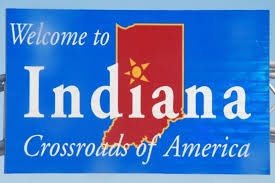Ensuring Religious Freedom in Indiana
< < Go Back
by Mike Pence,
Our new law has been grossly misconstrued as a ‘license to discriminate.’ That isn’t true, and here’s why.
Last week I signed the Religious Freedom Restoration Act, known as RFRA, which ensures that Indiana law will respect religious freedom and apply the highest level of scrutiny to any state or local governmental action that infringes on people’s religious liberty. Unfortunately, the law has stirred a controversy and in recent days has been grossly misconstrued as a “license to discriminate.”
I want to make clear to Hoosiers and every American that despite what critics and many in the national media have asserted, the law is not a “license to discriminate,” either in Indiana or elsewhere. In fact, the Religious Freedom Restoration Act reflects federal law, as well as law in 30 states nationwide. Indiana’s legislation is about affording citizens full protection under Indiana law.
I abhor discrimination. I believe in the Golden Rule that you should “do unto others as you would have them do unto you.” If I saw a restaurant owner refuse to serve a gay couple, I wouldn’t eat there anymore. As governor of Indiana, if I were presented a bill that legalized discrimination against any person or group, I would veto it. Indiana’s new law contains no reference to sexual orientation. It simply mirrors federal law that President Bill Clinton signed in 1993.
As Prof. Daniel O. Conkle of Indiana University’s Maurer School of Law, a supporter of gay rights, including same-sex marriage, wrote last week in the Indianapolis Star: “The proposed Indiana RFRA would provide valuable guidance to Indiana courts, directing them to balance religious freedom against competing interests under the same legal standard that applies throughout most of the land. It is anything but a ‘license to discriminate,’ and it should not be mischaracterized or dismissed on that basis.”
People have asked why this is necessary. After all, the U.S. Constitution and the Indiana Constitution provide strong recognition of freedom of religion. But RFRA is in many ways overdue in Indiana.
In 1990 the U.S. Supreme Court ruled in Employment Division of Oregon v. Smith that the First Amendment’s free exercise clause could not be raised as a defense to generally applicable laws, even if the law infringed on a person’s religious liberty. In response, Congress passed and President Clinton signed the Religious Freedom Restoration Act in 1993. This law limits federal government action that would infringe upon religion to only those acts that did not substantially burden free exercise of religion, absent a compelling governmental interest and in the least restrictive means.
For example, a public school in Texas in 2008 told a Native American kindergartner that he would have to cut his hair because of the school’s grooming policies. But keeping his hair long was part of his religious practice, which allowed his parents to prevail in federal court under RFRA.
Many states have enacted RFRAs of their own; 19 states have passed such laws and 11 state courts have interpreted the law to provide a heightened standard for reviewing government action. When President Obama was a state senator in Illinois, he supported Illinois’s version of the law in 1998. Historically, this law has received wide bipartisan support.
But Indiana never passed such a law. Then in 2010 came the Affordable Care Act, which renewed concerns about government infringement on deeply held religious beliefs. Hobby Lobby and the University of Notre Dame both filed lawsuits challenging provisions that required the institutions to offer certain types of insurance coverage in violation of their religious views.
Last year the Supreme Court upheld religious liberty in Burwell v. Hobby Lobby, based on the federal RFRA. With the Supreme Court’s ruling, the need for a RFRA at the state level became more important, as the federal law does not apply to states.
Some express concern that Indiana’s RFRA law would lead to discrimination, but RFRA only provides a mechanism to address claims, not a license for private parties to deny services. Even a claim involving private individuals under RFRA must show that one’s religious beliefs were “substantially burdened” and not in service to a broader government interest—which preventing discrimination certainly is. The government has the explicit power under the law to step in and defend such interests.
As Thomas Jefferson noted, “No provision in our Constitution ought to be dearer to man than that which protects the rights of conscience against the enterprises of civil authority.” I regret that false narratives and misrepresentations of the RFRA have taken hold.
The hospitality and character of Hoosiers are synonymous with everything that is good about America. Faith and religion are important values to millions of Indiana residents. With the passage of this legislation, Indiana will continue to be a place that respects the beliefs of every person in our state.
More From The Wall Street Journal (subscription required):




